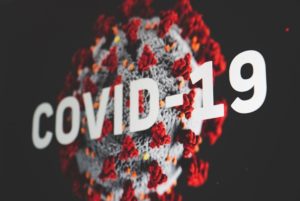 A raised troponin level in myocardial injury “greatly alters the prognosis adversely” in COVID-19 patients, Graham Cole (Imperial College Healthcare NHS Trust, London, UK) told a virtual cardiovascular conference, hosted today by Imperial College London.
A raised troponin level in myocardial injury “greatly alters the prognosis adversely” in COVID-19 patients, Graham Cole (Imperial College Healthcare NHS Trust, London, UK) told a virtual cardiovascular conference, hosted today by Imperial College London.
Cole explained: “Troponin rises occur in the context of lots of other abnormalities, and can partition patients into those who survive and those who do not ”
He was speaking as part of a session on the science behind COVID-19 and cardiovascular disease, and therapeutic possibilities.
Citing data from Wuhan in China, Cole said that mortality was 50% among cases who troponin levels were increased, while only 1% of those who survive have raised levels.
“Myocardial injury is key in COVID-19; I do not know the exact mechanism but I know it is very important.” He explained that the myocardial injury seen with COVID-19 does not follow the usual pattern: “Age and risk factors are not the same as they are in typical myocarditis. Patients are older and it is associated with cardiovascular risk factors. I think that indicates that there is a different mechanism.”
Referring to the single case report that has been published with cardiac imaging of scar injury, he described it as “difficult to interpret”, adding, “I have not seen a myocarditis pattern like this before”.
Cole speculated that ACE-2 receptors may be important, but said the mechanism of action remains unclear and “may well be multifactorial”. He also queried whether thrombosis has relevance.
Other presentations in the same session dealt with the immunopathogenesis of COVID-19 (Peter Openshaw, Imperial College), the risk of vascular complications in COVID-19 (Joe Boyle, Imperial College), and novel technologies for investigating COVID-19 and the cardiovascular system (Amir Lerman, Mayo Clinic, Rochester, USA).
In addition, three talks addressed potential therapies. Justin Mason (National Heart and Lung Institute, Imperial College) looked at hydroxychloroquine: “As yet,” he said, “there is little evidence for it, but it has intriguing aspects.” It is currently being used in most of the treatment protocols in China, Italy, France and South Korea.
Dorian Haskard (Imperial College) said that clinical trials for colchicine were “justified”. “Although there is currently no data for its use, it is worthy of consideration, especially in patients with vascular comorbidities.”
Taryn Youngstein (Imperial College) covered the possibilities for anti-interleukin (IL)-6 therapy. She told the online audience that its potential is based on the fact that IL-6 is responsible for a large part of the acute-phase response. As with troponin, high levels of IL-6 are associated with a poor prognosis in COVID-19.











